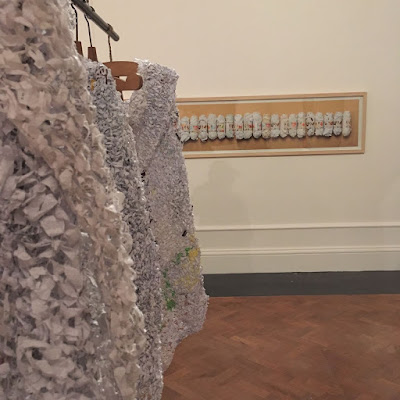Stitching @ Elna 13/14 August
A woman who had grown
up and schooled in Serbia during the Eastern Bloc, commented how her
experience expanded her general world knowledge. Her schooling had an
intense workload, increasing the number of subjects as she
progressed, graduating with 15 subjects! She feels that although it
was very difficult at the time, it has served her later in life,
especially by having to learn so many languages (6 including Latin).
This broad and sound knowledge base has equipped her with skills to
engage with a wide range of cultures during her global travels. She
questions the “western” approach to learning [I think mainly the
USA] where learners specialise far too early narrowing their
knowledge base (and not necessarily deepening it) resulting in a
parochial [non-global] vision. She is shocked by the apparent lack of
general knowledge and global awareness of the youth, in spite of the
apparent shrinking of the world through contemporary communication.
Another commentator
discussed how technology can impede motivation to learn basic skills;
why learn arithmetic when a calculator is readily at hand? This comes
as a theme; how technology replaces basic skill functions, yet
understanding the principles underpinning these basic functions are
necessary for mastering future more complex functions (mathematics
builds on arithmetic, etc). There seems to be a lack of respect for
the learning process; that learning is a life-long process which
builds on previously mastered skills, functions, awareness etc. The
prevailing instant-gratification-use-up-spend-now-pay-later global
culture does not encourage deep learning and understanding.
Education is a process
whereby learners are introduced to Masters of the past, so that these
knowledge bases can be developed, resulting in the new
(innovation/invention). This model is to encourage new thought and
awareness. This commentator feels that the current state of education
does not do this. Its agenda is to produce conforming agents who will
maintain the Status Quo.




Comments
Post a Comment